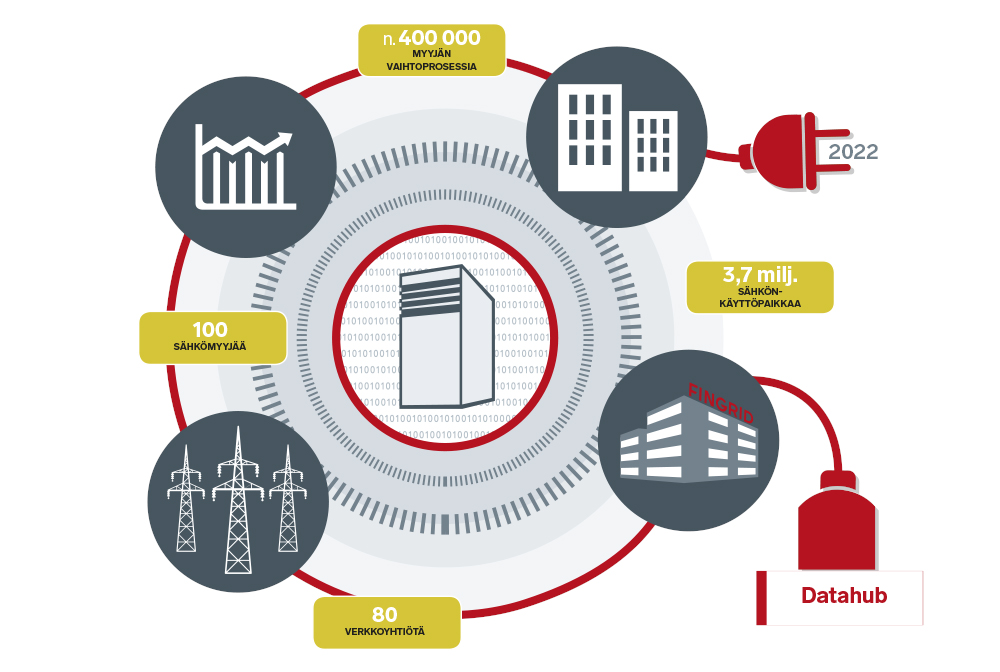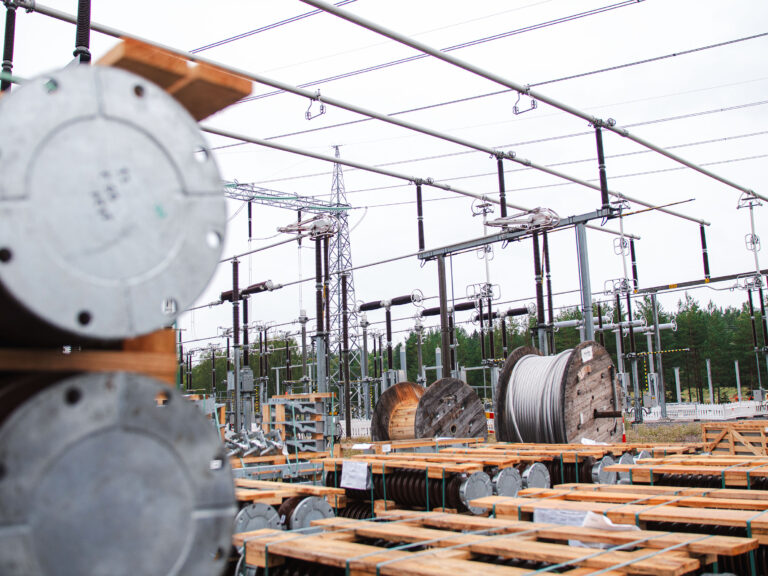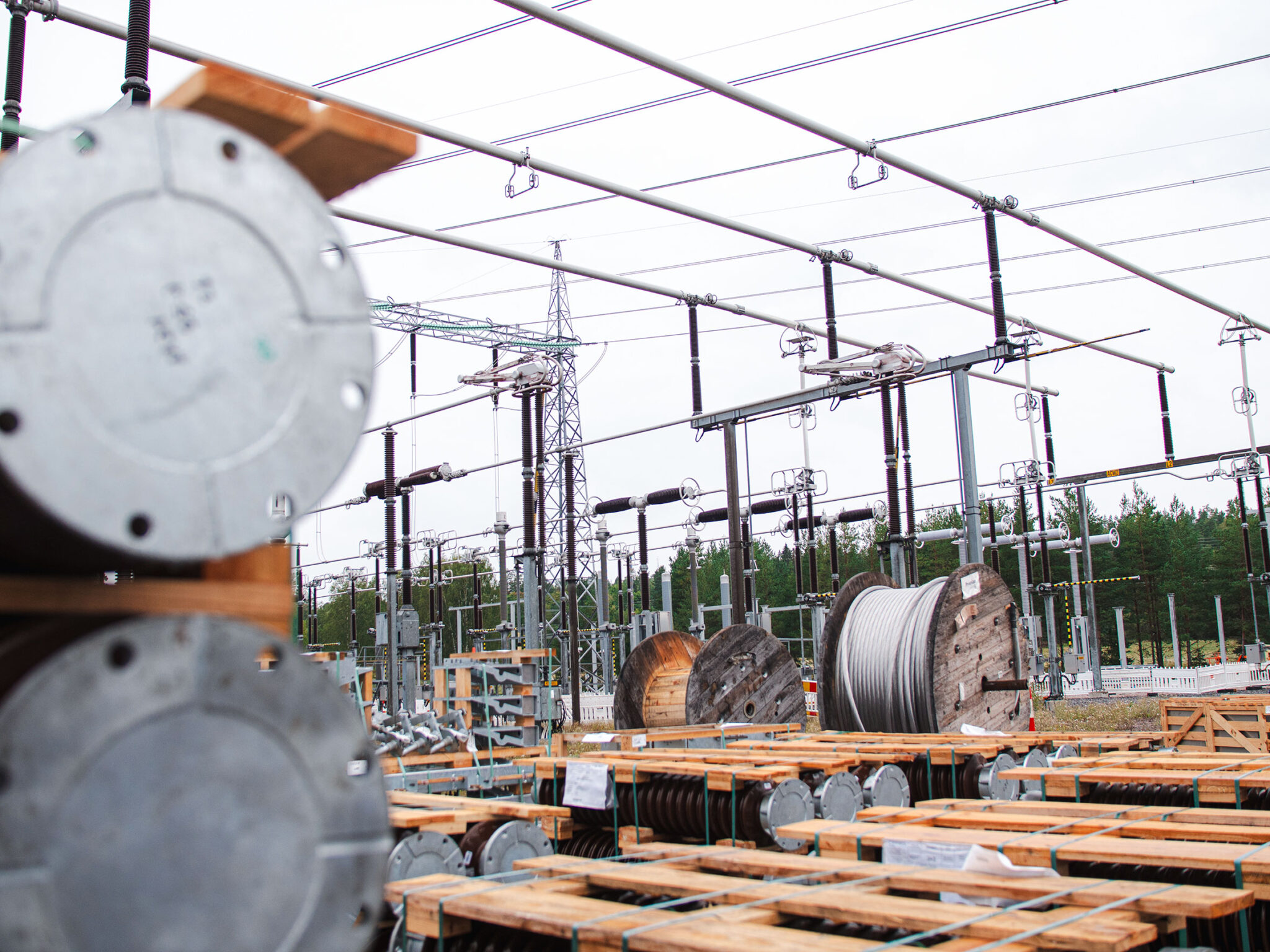The development of Datahub reached a significant milestone when the functionalities necessary for parties to receive certification were completed in August. The certification process is provided by the testing and certification service TEPA, which is an application that enables parties to test whether their systems are compatible with Datahub. This autumn, the service was opened up for deployment across the entire sector.
“The service will enable us to test use cases that are as realistic as possible; the service creates situations in which market parties exchange information, just as they will when Datahub is operational,” says Fredrik Södö, Expert from Fingrid.
The certification process is complete when the operator has carried out all mandatory use cases on the service successfully. No limits have been set for testing, so the same function can be tested several times. TEPA will also be included in the completed Datahub, and it will be especially useful when new processes are introduced.
Alongside TEPA, the TITTA data migration service is used in the development phase. Data is entered into the TITTA data migration service in the form of files, which TITTA checks before reporting any errors and findings if necessary. The error report helps the user to make the necessary corrections to the data.
TITTA is already widely used throughout the sector, and it enables the business data that must be uploaded when Datahub is deployed to be comprehensively verified before the production deployment of Datahub. The purpose of the data migration service is to ensure a high-quality initial upload to the Datahub, after which the service will no longer be needed.
Pilot group has tested various use cases
In the Datahub pilot group, the TEPA service has been used by the energy retail and network
operators Fortum, Caruna and Nivos. The service was opened up to the entire sector for test use in June, and since then, the majority of the system suppliers have been using the service intensively.
Fortum’s contact person for Datahub development work is ICT expert Laura Koskikallio.
“We have been able to bring our own insight and experience to the development work in the pilot group. Our main tasks have been to value and prioritise the certification use cases, such as making new contracts, ending contracts, updating customer details, and connection and disconnection processes, and to test the use cases before opening up the testing and certification service to the industry.”
In Koskikallio’s opinion, the deployment of the testing and certification service has gone well.
“There have been some minor technical issues, but they were quickly fixed. We needed to refine some of the use cases because they did not work in the same way on our systems. At the same time, our systems are also developing to suit the new practices.”
Testing and certification service to help users
“The purpose of TEPA is to help market parties to operate in Datahub business processes and produce the correct data for Datahub automatically,” explains Fredrik Södö.
Various use cases have been set up on TEPA for parties operating in different roles in the market. Electricity retailers have dedicated use cases, and network operators and metering data responsibles have their own. The service includes a counterparty simulator, which handles the counterparty’s duties in various use cases.
For example, a typical use case for an electricity retailer is to notify a sales contract in the event of a customer move in. The service creates an accounting point in Datahub, sends the customer details to be used in the agreement to the user, and, finally, checks that the agreement was created correctly. The data is transferred from Datahub to the grid access provider, and the TEPA counterparty simulator confirms the contract.
“Ease of deployment has been an important guiding principle for the development work. We wanted to build clear, browser-based services that operators can use independently without Fingrid’s help,” says Södö.







